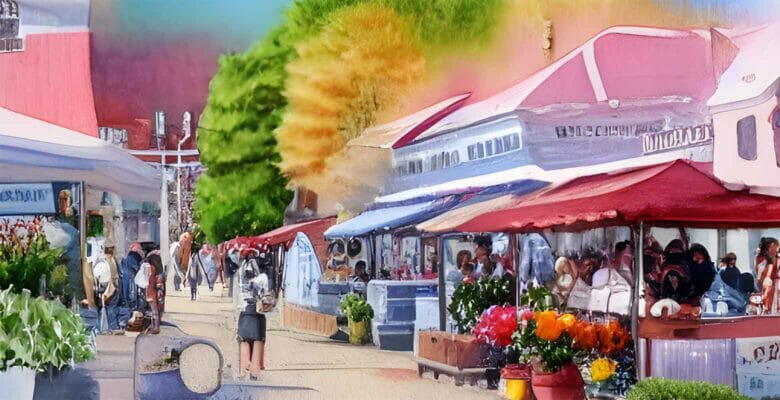Practically everywhere you look, you’ll see evidence of community wealth. It’s the local coffee shop on the corner, the farmer’s market down the street, and the family-owned restaurant that’s been in business for generations. Community wealth is all around us, but what does it really mean? And why is it important?
The term “community wealth” is frequently utilized but not fully understood. The resources available to a community to maintain itself are referred to as community wealth. Assets, such as land, infrastructure, businesses, cultural monuments, heritage sites, and people’s relationships, are all examples of this. In a nutshell, community wealth is all of the resources, both tangible and intangible, that are owned by the members of a given community.
Community wealth is important because it allows a community to become self-sufficient and thrive. When a community has a strong base of community wealth, it means that the members of the community can work together to support each other and create a positive environment. It also allows communities to have greater control over their own destinies. When the members of a community own its wealth, they can make decisions about how that wealth should be used to benefit the community as a whole. This is in contrast to communities where the bulk of the wealth is owned by outsiders, who may not have the best interests of the community at heart.
A community with a strong foundation of community wealth is more economically stable and can better handle outside shocks. With global challenges like climate change and income inequality, our communities need to be as strong as possible. Robust levels of community wealth help to create more resilient communities. This is because when the members of a community own its wealth, they are less likely to be displaced when outside forces—such as economic downturns or natural disasters—threaten the stability of the community.
When businesses in the community are thriving, they can provide jobs for their residents. They can help to attract new businesses and residents to the area. When people see that a community has a lot to offer, they are more likely to want to be a part of it. This can help to increase tax revenues and also help to improve the local economy. Community wealth also has the potential to create greater equality within communities. This is because when the members of a community own its wealth, they can share in its benefits (such as job creation or increased tax revenue) more equitably.
A prosperous community can also benefit the physical environment by having a strong local economy. The presence of companies in the area is associated with better upkeep of buildings and the surrounding area. This improves the appearance of the entire neighborhood, allowing for even more businesses and residents to settle there. Reducing crime then helps to improve the quality of life for everyone in the area.
Not only do thriving local economies provide benefits to their residents, but they also benefit the larger society. An economically prosperous community is more likely to be politically stable. This is because people who have a stake in their community are more likely to want to protect it. They are also more likely to participate in the political process and work towards policies that benefit their community. When natural disasters or economic recessions occur, prosperous communities have the resources to bounce back without as much assistance from the government or outside organizations.
Community wealth is the foundation upon which strong, vibrant communities are built. By working together to create and maintain their own wealth, communities can have greater control over their destinies, become more resilient in the face of adversity, and create greater equality for all members of the community regardless of their background or circumstances. There are many ways to build community wealth, but it all starts with coming together and working towards common goals. We all have a role to play in building prosperous communities—let’s get started!
